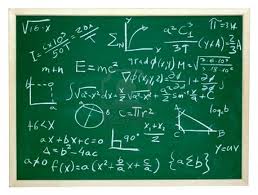Scientists have previously believed that the relatively low numbers of women in high-level mathematics could be due to biological differences between men and women.
But a new, international study at the University of Wisconsin-Madison has cast doubt on the idea that the differences are biological at all.
The study used data from schools in 86 countries, it’s the first major study to include so many non-Western societies, and concluded that differences in mathematical ability were due to unequal societies, not unequal biology.
The differences in performance seemed to be caused by social factors, i.e., each society’s attitude to women.
This is not a matter of biology. We found that boys, as well as girls, tend to do better in maths when raised in countries where females have better equality,’ said the researchers.
‘We found that boys as well as girls tend to do better in maths when raised in countries where females have better equality, and that’s new and important,’ said Jonathan Kane, a professor of mathematical and computer sciences at the University of Wisconsin-Whitewater.
According to researchers, none of their findings suggest that an innate biological difference between the sexes is the primary reason for a gender gap in math performance at any level.
Rather, these major international studies strongly suggest that the maths gender gap, where it occurs, is due to cultural factors that differ among countries and that these factors can be changed.
‘The girls living in some Middle Eastern countries, such as Bahrain and Oman, had, in fact, not scored very well, but their boys had scored even worse, a result found to be unrelated to either Muslim culture or schooling in single-gender classrooms,’ says Kane.
He suggests that Bahraini boys may have low average math scores because some attend religious schools whose curricula include little mathematics.
Also, some low-performing girls drop out of school, making the tested sample unrepresentative of the whole population.
‘For these reasons, we believe it is much more reasonable to attribute differences in maths performance primarily to country, specific social factors,’ Kane says.
To measure the status of females relative to males within each country, the authors relied on a gender-gap index, which compares the genders in terms of income, education, health and political participation.
Relating these indices to math scores, they concluded that math achievement at the low, average and high end for both boys and girls tends to be higher in countries where gender equity is better.
